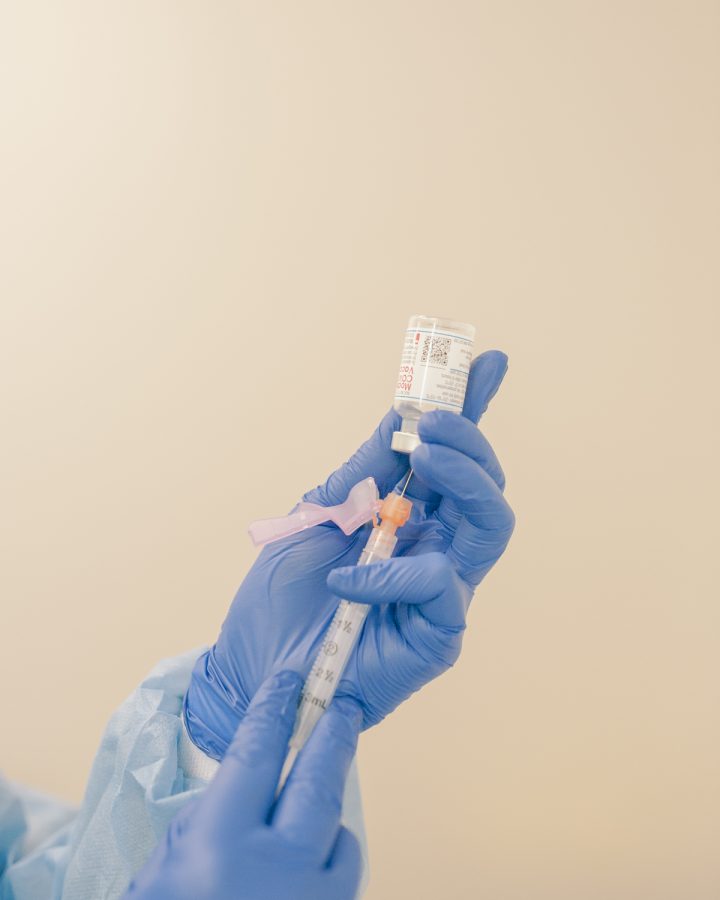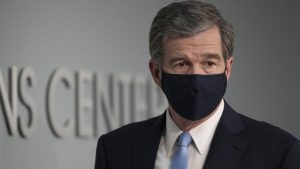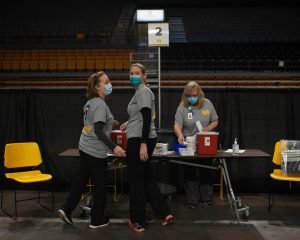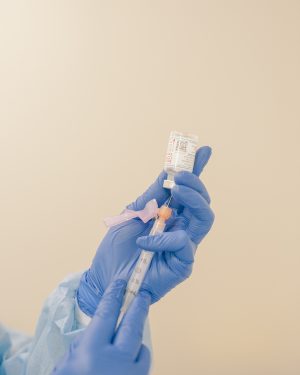All North Carolina adults eligible for COVID-19 vaccine beginning April 7
Katie Knapp preps needles with the Moderna vaccine for patients.
March 25, 2021
Gov. Roy Cooper announced Thursday that all North Carolina adults will be eligible for a COVID-19 vaccine beginning April 7.
The rest of Group 4, which includes college students living in dorms, will be eligible on March 31, one week earlier than anticipated. Group 5, all adults, will be eligible April 7.
Beginning April 7, 16 and 17 year olds will also be eligible, but only for the Pfizer vaccine because the others are not authorized for minors.
North Carolina has had 903,374 cases of COVID-19, 2,112 new cases, 945 hospitalizations and 11,987 deaths as of March 25. The state has administered 4.2 million vaccine doses, 19.1% of the population is fully vaccinated.
Cooper did not give specifics on when the mask mandate will be lifted. He said the key to that happening is people continuing to get vaccinated.
Cooper said he is concerned that a large part of the population is unsure about getting vaccinated and may “refuse.” He called upon doctors, friends and family to convince those who are unsure to get vaccinated.
Despite these considerations, Cooper said there is hope that a return to normalcy can happen soon and that, “we’re looking forward to summertime.”
Mandy Cohen, secretary of the North Carolina Department of Health and Human Services, announced a new initiative called Healthier Together: Health Equity Action Network, which is aimed at providing equitable vaccine distribution to marginalized communities. Healthier Together is a public private partnership between the state and the NC Counts Coalition.
Stacey Carless, executive director of NC Counts Coalition, described the plan which will focus on community based outreach.
“COVID has exposed and exacerbated racial and ethnic health disparities stemming from a history of exploitation, disinvestment, disenfranchisement and marginalization of (communities of people of color),” said Carless.
The program will use federal COVID-19 funds to coordinate local vaccine events at trusted locations, schedule vaccine appointments, offer translation services and ensure people receive their second vaccine dose.
According to the North Carolina Department of Health and Human Services, 23.1% of Black residents, 9.8% of Hispanic residents and 71.7% of white residents have been vaccinated.
Cooper addressed residents’ desire to get vaccinated through their primary care physician and said the main obstacle is cold storage requirements for the vaccine, specifically the Pfizer and Moderna vaccines.
The governor said greater supply of the Johnson & Johnson vaccine, which does not need the same cold storage, will allow residents to get vaccinated through their primary care provider.
Cooper said the goal is to create more supply of the vaccine than there is demand.
“We’re close to getting where we want to be, let’s stay the course and get there faster,” Cooper said.














